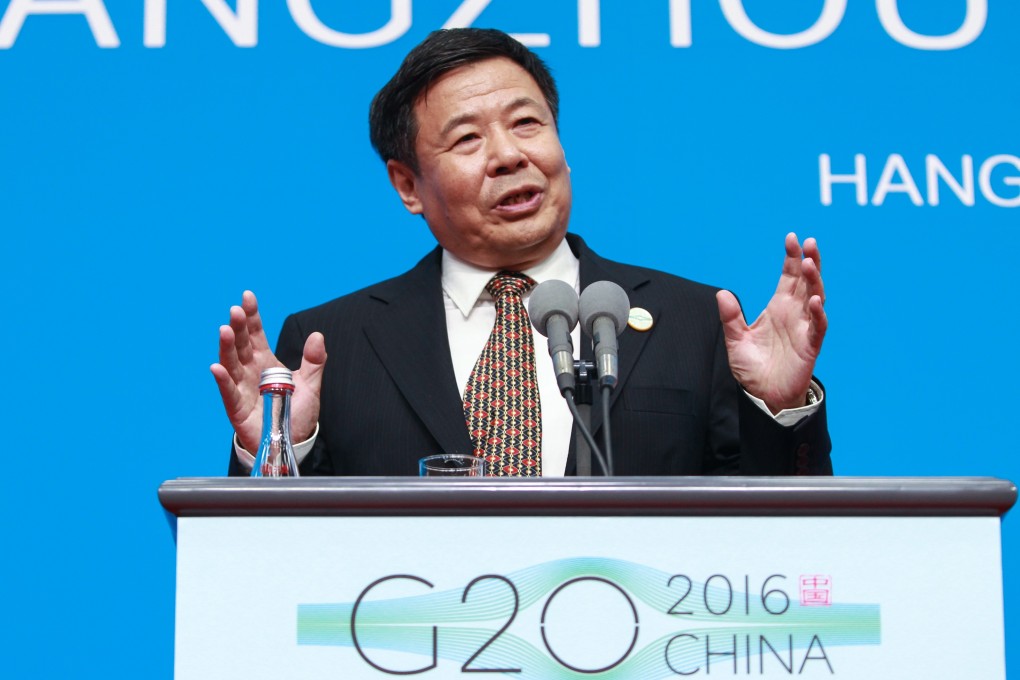Advertisement
China’s economy to ride out containment efforts by an increasingly anxious US, former official says
- Former vice finance minister Zhu Guangyao said China has factored such external challenges as posed by the United States into its dual-circulation strategy
- The Biden administration has strengthened strategic competition with China by introducing new stimulus packages, and the US Innovation and Competition Act
Reading Time:2 minutes
Why you can trust SCMP
2

Frank Tangin Beijing
China is steadily on course for economic expansion and is set to avoid the middle-income trap in coming years, despite the containment efforts by an increasingly anxious Washington, a former Chinese official said on Thursday.
According to former vice finance minister Zhu Guangyao, the world’s second largest economy has factored such external challenges into its dual circulation strategy, in which the country will rely more on domestic consumption, technology and innovation for growth.
Zhu, who was involved in economic dialogues with the Obama administration and also the early years of the Trump administration, attributed the mounting containment efforts by the United States to its unease with how fast China is catching up.
Advertisement
“The China-US economic gap has been narrowed considerably … The US anxiety is indeed growing,” Zhu said at the Caixin Summer Summit in Beijing on Thursday.
“We should have fair competition based on market rules, rather than contain the other with non-market measures.”
Beijing is keen for China to avoid the so-called middle income trap, a development stage where a country attains a certain level of income but then stagnates and remains at the same level because it cannot progress from low-cost manufacturing into hi-tech industries.
Advertisement
Select Voice
Select Speed
1.00x